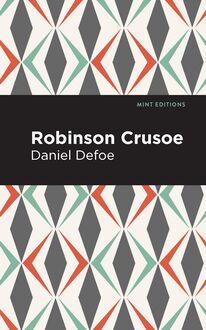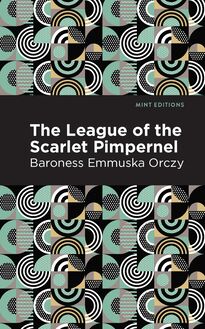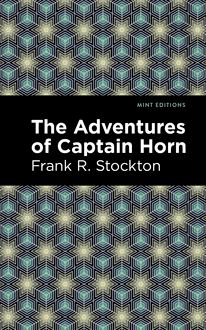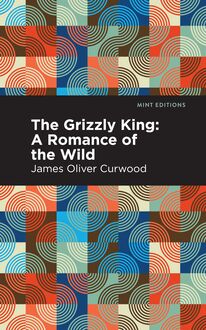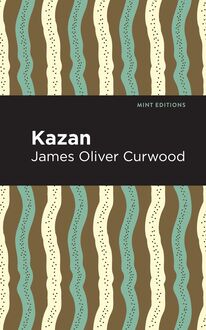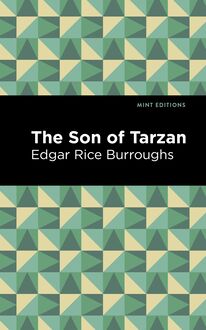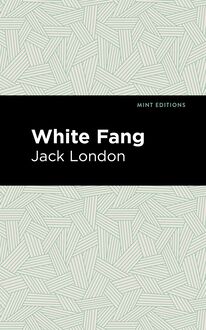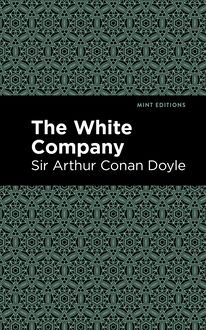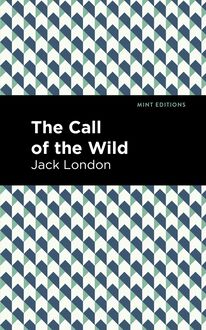-
 Univers
Univers
-
 Ebooks
Ebooks
-
 Livres audio
Livres audio
-
 Presse
Presse
-
 Podcasts
Podcasts
-
 BD
BD
-
 Documents
Documents
-
- Cours
- Révisions
- Ressources pédagogiques
- Sciences de l’éducation
- Manuels scolaires
- Langues
- Travaux de classe
- Annales de BEP
- Etudes supérieures
- Maternelle et primaire
- Fiches de lecture
- Orientation scolaire
- Méthodologie
- Corrigés de devoir
- Annales d’examens et concours
- Annales du bac
- Annales du brevet
- Rapports de stage
La lecture à portée de main
Vous pourrez modifier la taille du texte de cet ouvrage
Découvre YouScribe en t'inscrivant gratuitement
Je m'inscrisDécouvre YouScribe en t'inscrivant gratuitement
Je m'inscrisEn savoir plus
Vous pourrez modifier la taille du texte de cet ouvrage
En savoir plus

Description
Officer Harry Feversham leaves his military position right before an important battle to the disappointment of his three closest friends and the woman he loves. Appalled by his decision, they each gift him with one striking symbol—a white feather. A young British soldier, Harry Feversham, suddenly resigns from his post and leaves his regiment. He is quickly overcome with shame as he receives four feathers, which signify his cowardice. Three are from his peers Captain Trench, Lieutenant Castleton and Lieutenant Willoughby, and one is from his fiancée, Ethne Eustace. Driven by guilt, Harry participates in various heroic acts to regain his honor and return their feathers. The Four Feathers is one of A.E.W. Mason’s most famous works. It explores the unbearable weight of status and reputation in a world driven by strict codes. It has been adapted multiple times for television and film. The most notable version was the 2002 feature starring Oscar-winner Heath Ledger as Harry. With an eye-catching new cover, and professionally typeset manuscript, this edition of The Four Feathers is both modern and readable.
Sujets
Informations
| Publié par | Mint Editions |
| Date de parution | 14 mai 2021 |
| Nombre de lectures | 0 |
| EAN13 | 9781513286297 |
| Langue | English |
| Poids de l'ouvrage | 1 Mo |
Informations légales : prix de location à la page 0,0500€. Cette information est donnée uniquement à titre indicatif conformément à la législation en vigueur.
Extrait
The Four Feathers
A.E.W. Mason
The Four Feathers was first published in 1902.
This edition published by Mint Editions 2021.
ISBN 9781513281278 | E-ISBN 9781513286297
Published by Mint Editions®
minteditionbooks.com
Publishing Director: Jennifer Newens
Design & Production: Rachel Lopez Metzger
Project Manager: Micaela Clark
Typesetting: Westchester Publishing Services
C ONTENTS I. A C RIMEAN N IGHT II. C APTAIN T RENCH AND A T ELEGRAM III. T HE L AST R IDE T OGETHER IV. T HE B ALL AT L ENNON H OUSE V. T HE P ARIAH VI. H ARRY F EVERSHAM ’ S P LAN VII. T HE L AST R ECONNAISSANCE VIII. L IEUTENANT S UTCH IS TEMPTED TO LIE IX. A T G LENALLA X. T HE W ELLS OF O BAK XI. D URRANCE HEARS N EWS OF F EVERSHAM XII. D URRANCE SHARPENS HIS W ITS XIII. D URRANCE BEGINS TO S EE XIV. C APTAIN W ILLOUGHBY REAPPEARS XV. T HE S TORY OF THE F IRST F EATHER XVI. C APTAIN W ILLOUGHBY RETIRES XVII. T HE M USOLINE O VERTURE XVIII. T HE A NSWER TO THE O VERTURE XIX. M RS . A DAIR INTERFERES XX. W EST AND E AST XXI. E THNE MAKES A NOTHER S LIP XXII. D URRANCE LETS HIS C IGAR GO OUT XXIII. M RS . A DAIR MAKES HER A POLOGY XXIV. O N THE N ILE XXV. L IEUTENANT S UTCH COMES OFF THE H ALF -P AY L IST XXVI. G ENERAL F EVERSHAM ’ S P ORTRAITS ARE A PPEASED XXVII. T HE H OUSE OF S TONE XXVIII. P LANS OF E SCAPE XXIX. C OLONEL T RENCH ASSUMES A K NOWLEDGE OF C HEMISTRY XXX. T HE L AST OF THE S OUTHERN C ROSS XXXI. F EVERSHAM RETURNS TO R AMELTON XXXII. I N THE C HURCH AT G LENALLA XXXIII. E THNE AGAIN PLAYS THE M USOLINE O VERTURE XXXIV. T HE E ND
I
A C RIMEAN N IGHT
L ieutenant Sutch was the first of General Feversham’s guests to reach Broad Place. He arrived about five o’clock on an afternoon of sunshine in mid June, and the old red-brick house, lodged on a southern slope of the Surrey hills, was glowing from a dark forest depth of pines with the warmth of a rare jewel. Lieutenant Sutch limped across the hall, where the portraits of the Fevershams rose one above the other to the ceiling, and went out on to the stone-flagged terrace at the back. There he found his host sitting erect like a boy, and gazing southward toward the Sussex Downs.
“How’s the leg?” asked General Feversham, as he rose briskly from his chair. He was a small wiry man, and, in spite of his white hairs, alert. But the alertness was of the body. A bony face, with a high narrow forehead and steel-blue inexpressive eyes, suggested a barrenness of mind.
“It gave me trouble during the winter,” replied Sutch. “But that was to be expected.” General Feversham nodded, and for a little while both men were silent. From the terrace the ground fell steeply to a wide level plain of brown earth and emerald fields and dark clumps of trees. From this plain voices rose through the sunshine, small but very clear. Far away toward Horsham a coil of white smoke from a train snaked rapidly in and out amongst the trees; and on the horizon rose the Downs, patched with white chalk.
“I thought that I should find you here,” said Sutch.
“It was my wife’s favourite corner,” answered Feversham in a quite emotionless voice. “She would sit here by the hour. She had a queer liking for wide and empty spaces.”
“Yes,” said Sutch. “She had imagination. Her thoughts could people them.”
General Feversham glanced at his companion as though he hardly understood. But he asked no questions. What he did not understand he habitually let slip from his mind as not worth comprehension. He spoke at once upon a different topic.
“There will be a leaf out of our table to-night.”
“Yes. Collins, Barberton, and Vaughan went this winter. Well, we are all permanently shelved upon the world’s half-pay list as it is. The obituary column is just the last formality which gazettes us out of the service altogether,” and Sutch stretched out and eased his crippled leg, which fourteen years ago that day had been crushed and twisted in the fall of a scaling-ladder.
“I am glad that you came before the others,” continued Feversham. “I would like to take your opinion. This day is more to me than the anniversary of our attack upon the Redan. At the very moment when we were standing under arms in the dark—”
“To the west of the quarries; I remember,” interrupted Sutch, with a deep breath. “How should one forget?”
“At that very moment Harry was born in this house. I thought, therefore, that if you did not object, he might join us to-night. He happens to be at home. He will, of course, enter the service, and he might learn something, perhaps, which afterward will be of use—one never knows.”
“By all means,” said Sutch, with alacrity. For since his visits to General Feversham were limited to the occasion of these anniversary dinners, he had never yet seen Harry Feversham.
Sutch had for many years been puzzled as to the qualities in General Feversham which had attracted Muriel Graham, a woman as remarkable for the refinement of her intellect as for the beauty of her person; and he could never find an explanation. He had to be content with his knowledge that for some mysterious reason she had married this man so much older than herself and so unlike to her in character. Personal courage and an indomitable self-confidence were the chief, indeed the only, qualities which sprang to light in General Feversham. Lieutenant Sutch went back in thought over twenty years, as he sat on his garden-chair, to a time before he had taken part, as an officer of the Naval Brigade, in that unsuccessful onslaught on the Redan. He remembered a season in London to which he had come fresh from the China station; and he was curious to see Harry Feversham. He did not admit that it was more than the natural curiosity of a man who, disabled in comparative youth, had made a hobby out of the study of human nature. He was interested to see whether the lad took after his mother or his father—that was all.
So that night Harry Feversham took a place at the dinner-table and listened to the stories which his elders told, while Lieutenant Sutch watched him. The stories were all of that dark winter in the Crimea, and a fresh story was always in the telling before its predecessor was ended. They were stories of death, of hazardous exploits, of the pinch of famine, and the chill of snow. But they were told in clipped words and with a matter-of-fact tone, as though the men who related them were only conscious of them as far-off things; and there was seldom a comment more pronounced than a mere “That’s curious,” or an exclamation more significant than a laugh.
But Harry Feversham sat listening as though the incidents thus carelessly narrated were happening actually at that moment and within the walls of that room. His dark eyes—the eyes of his mother—turned with each story from speaker to speaker, and waited, wide open and fixed, until the last word was spoken. He listened fascinated and enthralled. And so vividly did the changes of expression shoot and quiver across his face, that it seemed to Sutch the lad must actually hear the drone of bullets in the air, actually resist the stunning shock of a charge, actually ride down in the thick of a squadron to where guns screeched out a tongue of flame from a fog. Once a major of artillery spoke of the suspense of the hours between the parading of the troops before a battle and the first command to advance; and Harry’s shoulders worked under the intolerable strain of those lagging minutes.
But he did more than work his shoulders. He threw a single furtive, wavering glance backwards; and Lieutenant Sutch was startled, and indeed more than startled,—he was pained. For this after all was Muriel Graham’s boy.
The look was too familiar a one to Sutch. He had seen it on the faces of recruits during their first experience of a battle too often for him to misunderstand it. And one picture in particular rose before his mind,—an advancing square at Inkermann, and a tall big soldier rushing forward from the line in the eagerness of his attack, and then stopping suddenly as though he suddenly understood that he was alone, and had to meet alone the charge of a mounted Cossack. Sutch remembered very clearly the fatal wavering glance which the big soldier had thrown backward toward his companions,—a glance accompanied by a queer sickly smile. He remembered too, with equal vividness, its consequence. For though the soldier carried a loaded musket and a bayonet locked to the muzzle, he had without an effort of self-defence received the Cossack’s lance-thrust in his throat.
Sutch glanced hurriedly about the table, afraid that General Feversham, or that some one of his guests, should have remarked the same look and the same smile upon Harry’s face. But no one had eyes for the lad; each visitor was waiting too eagerly for an opportunity to tell a story of his own. Sutch drew a breath of relief and turned to Harry. But the boy was sitting with his elbows on the cloth and his head propped between his hands, lost to the glare of the room and its glitter of silver, constructing again out of the swift succession of anecdotes a world of cries and wounds, and maddened riderless chargers and men writhing in a fog of cannon-smoke. The curtest, least graphic description of the biting days and nights in the trenches set the lad shivering. Even his face grew pinched, as though the iron frost of that winter was actually eating into his bones. Sutch touched him lightly on the elbow.
“You renew those days for me,” said he. “Though the heat is dripping down the windows, I feel the chill of the Crimea.”
Harry roused himself from his absorption.
“The stories renew them,” said he.
“No. It is you listening to the stories.”
And before Harry could reply, General Feversham’s voice broke sharply in from the head of the table:—
“Harry, look at the clock!”
At once all eyes were turned upon the lad. The hands of the clock made the acutest of angles. It was close upon midnight; and from eight, without so much as a word or a question, he
-
 Univers
Univers
-
 Ebooks
Ebooks
-
 Livres audio
Livres audio
-
 Presse
Presse
-
 Podcasts
Podcasts
-
 BD
BD
-
 Documents
Documents
-
Jeunesse
-
Littérature
-
Ressources professionnelles
-
Santé et bien-être
-
Savoirs
-
Education
-
Loisirs et hobbies
-
Art, musique et cinéma
-
Actualité et débat de société
-
Jeunesse
-
Littérature
-
Ressources professionnelles
-
Santé et bien-être
-
Savoirs
-
Education
-
Loisirs et hobbies
-
Art, musique et cinéma
-
Actualité et débat de société
-
Actualités
-
Lifestyle
-
Presse jeunesse
-
Presse professionnelle
-
Pratique
-
Presse sportive
-
Presse internationale
-
Culture & Médias
-
Action et Aventures
-
Science-fiction et Fantasy
-
Société
-
Jeunesse
-
Littérature
-
Ressources professionnelles
-
Santé et bien-être
-
Savoirs
-
Education
-
Loisirs et hobbies
-
Art, musique et cinéma
-
Actualité et débat de société
- Cours
- Révisions
- Ressources pédagogiques
- Sciences de l’éducation
- Manuels scolaires
- Langues
- Travaux de classe
- Annales de BEP
- Etudes supérieures
- Maternelle et primaire
- Fiches de lecture
- Orientation scolaire
- Méthodologie
- Corrigés de devoir
- Annales d’examens et concours
- Annales du bac
- Annales du brevet
- Rapports de stage
